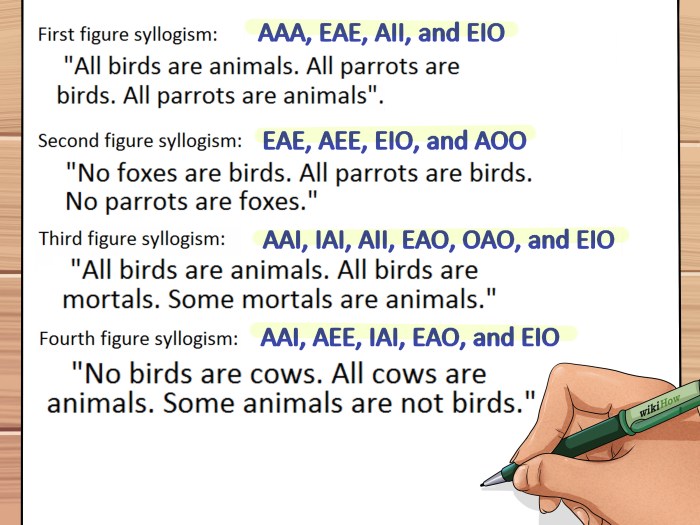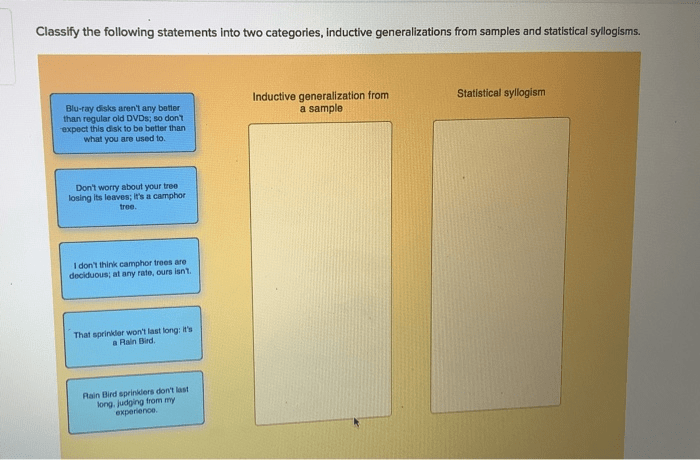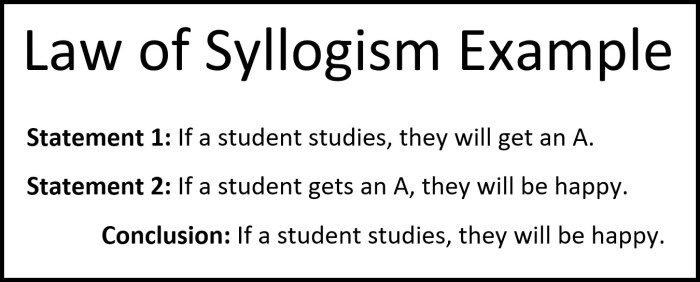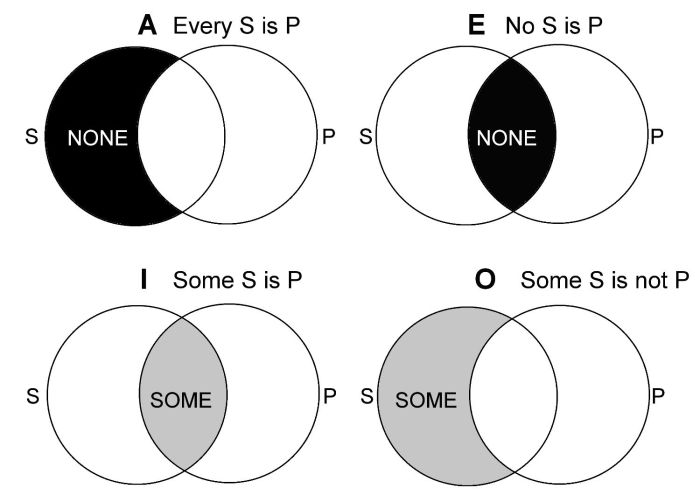In the realm of logic, the concept of syllogisms plays a pivotal role in deductive reasoning. However, not all statements about syllogisms hold true. This exploration delves into the intricate nature of syllogisms, unveiling the truth behind the statement “which of the following statements about syllogisms is false,” separating fact from fallacy.
Syllogisms, composed of premises and conclusions, form the backbone of deductive arguments. Understanding their structure, types, and potential fallacies is crucial for evaluating their validity and unraveling the truth they contain.
Definition of Syllogisms

A syllogism is a logical argument that consists of three parts: a major premise, a minor premise, and a conclusion. The major premise makes a general statement about a category of things. The minor premise makes a specific statement about a member of that category.
The conclusion draws a logical inference from the two premises.
For example, the following is a valid syllogism:
Major premise: All men are mortal.
Minor premise: Socrates is a man.
Conclusion: Therefore, Socrates is mortal.
This syllogism is valid because the conclusion follows logically from the premises. However, the following is an invalid syllogism:
Major premise: All cats are mammals.
Minor premise: My pet is a mammal.
Conclusion: Therefore, my pet is a cat.
This syllogism is invalid because the conclusion does not follow logically from the premises. It is possible that my pet is a mammal that is not a cat, such as a dog.
Helpful Answers: Which Of The Following Statements About Syllogisms Is False
What is a syllogism?
A syllogism is a logical argument consisting of two premises and a conclusion, where the conclusion follows deductively from the premises.
What is a valid syllogism?
A valid syllogism is one in which the conclusion follows logically from the premises, regardless of whether the premises are true or false.
What is an invalid syllogism?
An invalid syllogism is one in which the conclusion does not follow logically from the premises, even if the premises are true.


